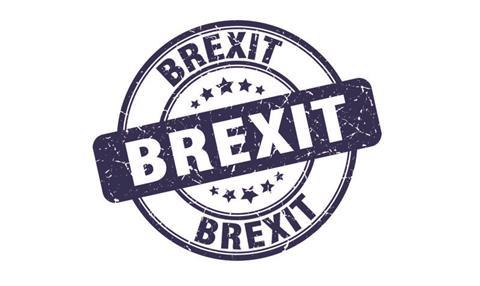
A reduction in import tariffs for new trucks in the event of a no-deal Brexit will still cripple UK haulage, according to manufacturers and trade associations.
The Department for International Trade (DIT) said that following discussions with industry and consumer groups, it had cut a planned 22% tax on HGV imports to 10%, bringing it into line with the car industry.
The DIT said the lower tariffs would strike a better balance between the needs of British producers and the SMEs that make up the bulk of the haulage industry.
Conor Burns, trade policy minister, said: “The UK will be leaving the EU on 31 October and we are working with businesses to ensure the UK is ready to trade from day one.
“Our temporary tariff regime will support the UK economy as a whole, helping British businesses to trade and opening up opportunities for business to import the best goods from around the world at the best prices for British consumers.”
Read more
- No-deal tariffs would be ‘absolutely dreadful’ for truck makers and buyers
- No-deal Brexit will bring “massive disruption” to automotive sector, EU manufacturers warn
- No deal Brexit ‘catastrophic’ for UK supply chain
But the RHA said it was adamant that any tariff would have a damaging effect: “The original proposal of a 22% tariff on HGVs coming in from the EU was unbelievable,” said RHA chief executive Richard Burnett.
“A 10% tariff will still be crippling and will severely damage the lives and livelihoods of those responsible for operating the very industry that keeps the UK fit to live in.”
Martin Hay, MD of Scania (Great Britain) said he welcomed any reduction, but he added: “Even 10% represents a great deal of additional cost for an industry which can ill afford it due to the low profit margins which persist today.”
The FTA said the reduction was not enough and that there should be no financial penalty on buying new vehicles.
FTA deputy CEO James Hookham said: “This is a tax on quality - new trucks are the cleanest and safest ever and the government wants to increase their price by three times the rate of inflation.
“Ministers need to join the dots on their strategies to improve air quality in towns and cities and the costs they are imposing on truck operators because of Brexit.
“A 10% price increase on new trucks will hinder the logistics industry contribution to environmental savings,” he added.
Isuzu Trucks UK MD Peter Murphy described the move as “damage limitation” and added: “What we actually need is a permanent solution to plan over the long term. We need to have a deal with the EU; the future trading relationship deal has to be established.
“We assemble in the EU because the vehicles come in semi-knocked-down on a reduced tariff. If we end up with WTO we might as well bring them in direct from Japan.”
He said: “We can make some operational efficiencies if we understand long term what the situation is. But at the moment we as a business can’t plan for the long term, because we don’t know what the future holds in terms of the future relationship with Europe.
Murphy added: “And it’s only a 12-month measure. In the real world of business 12 months comes around very, very quickly.
“It’s a bit of respite but by no means what we are looking for.”













